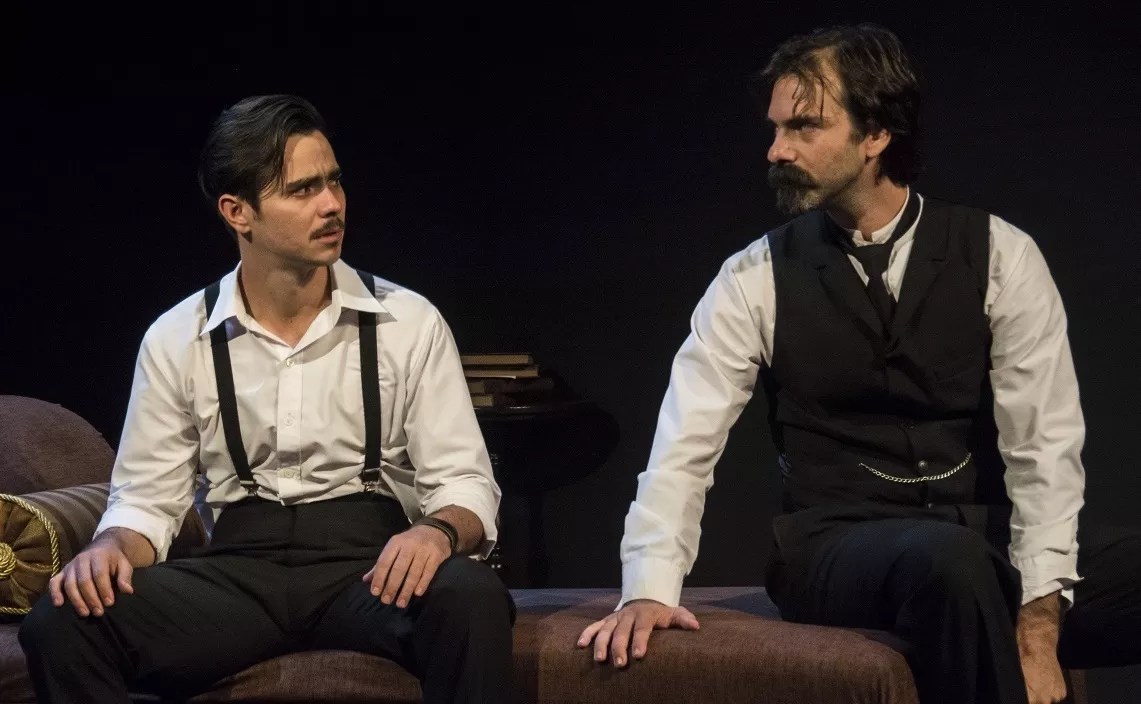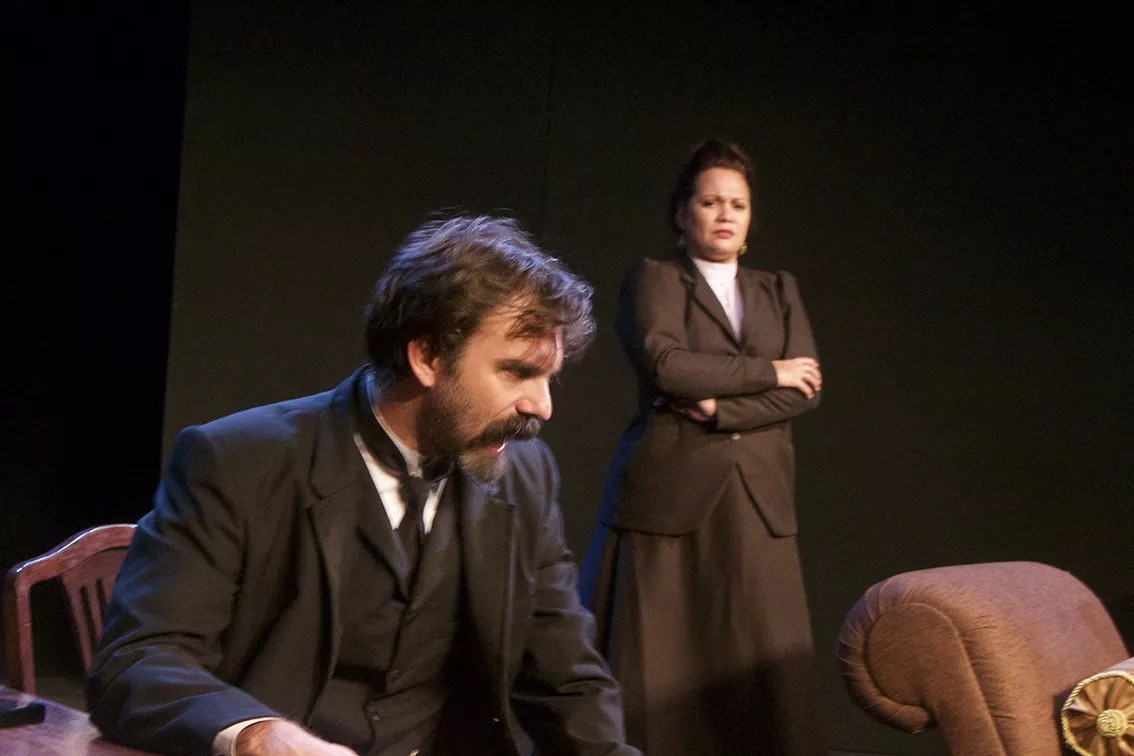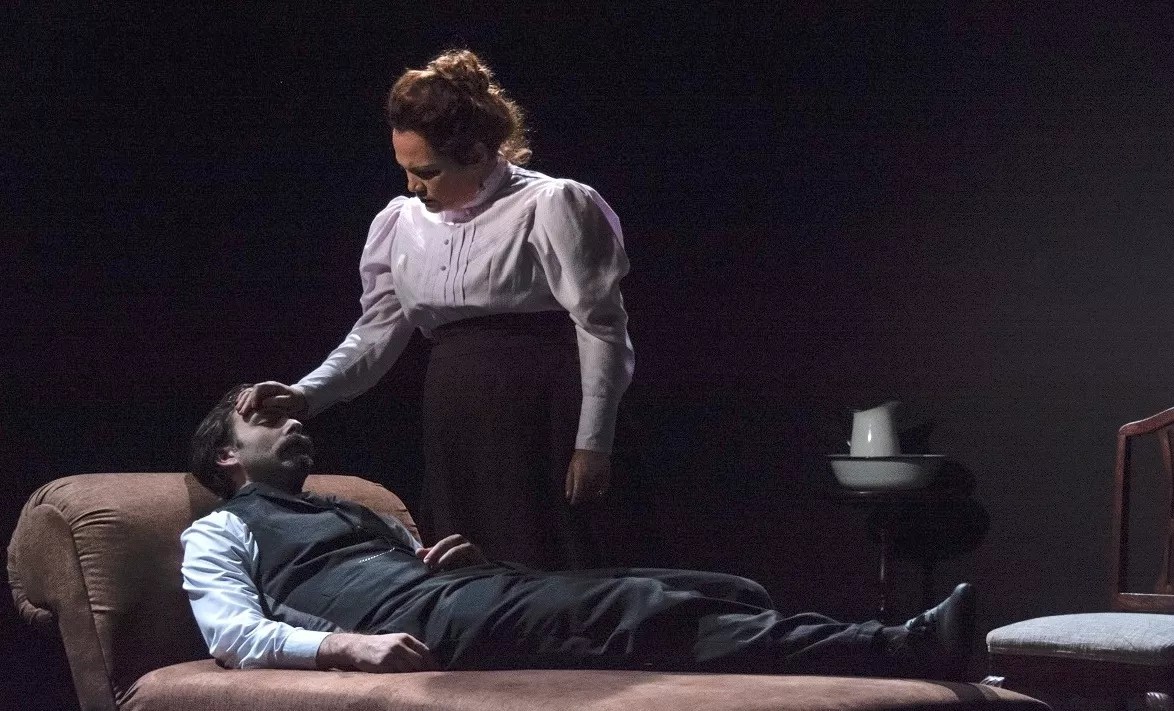
Photo by Sonia Almaguer

Audio By Carbonatix
Spanish-language theater produced locally and by companies outside Miami-Dade County is not rare in an area where only 27 percent of residents are English-only speakers.
While productions in Spanish have always been part of Miami-Dade’s theater scene – Mario Ernesto Sánchez’s Teatro Avante and the yearly International Hispanic Theatre Festival have long led the way, for example – Alexa Kuve, the executive and producing artistic director of Arca Images, agrees there are barriers for non-Spanish speaking theatergoers who might want to attend a performance in its original language.
Many companies now offer supertitles, much like opera, with the English translation appearing in text – but even that creates a barrier. Theater creates and requires intimacy between actors and audiences, and that can become a battle for attention if the theatergoer is watching what’s going on onstage and following the words in captions.
Kuve says that it is important to draw in English and Spanish speakers, especially for its upcoming production of Hierro (Iron) by Cuban-Spanish playwright Carlos Celdrán.
“Carlos tells a very different story about José Martí, who is a near mythological figure for Latin Americans. This play is an eloquent re-examination of his life,” says Kuve.
Hierro will open on Thursday, July 27, and run through Sunday, August 6, at the Miami-Dade County Auditorium in its original Spanish but with a simultaneous English translation. A translator in another room of the theater watches what is happening on stage through a video connection and translates in real time, Kuve explains. Audiences can listen to the English version through wireless headphones that are provided. Although not the first time Arca has offered the simultaneous translation, Kuve is hoping the word gets out about Hierro.

Caleb Casas as José Mart
Arca Images photo
“This is a play that has only been performed live before in Cuba,” says Kuve. Celdrán, who lives in Madrid, is directing the play and is in Miami working with actors, many who now live here but performed in the original production in Havana.
The play had its world premiere in November 2019 at Celdrán’s company, Argos Teatro.
“It had a good run there just before the pandemic hit,” he says. “It caused an impact.”
He says his work demystifies the image of the National Hero of Cuba and of the man who became a symbol of Cuba’s bid for independence from Spain in the 19th century; many view Martí as the apostle of Cuban independence.
“This is not an official version of him,” Celdrán says in Spanish, with Kuve translating to English. “His image has been manipulated to the Cuban people.” He calls it “Martianism,” which has detracted from Cubans learning about his human side.
“Martí was an epic figure, but he was also human,” says the playwright. Kuve adds: “Through his research, Carlos discovered this person that was not in any history books.”
Celdrán says his purpose in writing the play was a mix of his own fascination with the Cuban nationalist, poet, and essayist, which began when Celdrán was a boy in Cuba and a desire to “start a dialogue about this figure that is so important for Cubans in and out of Cuba.”
The playwright says his story is a reinterpretation that returns to the beginning of Martí’s story.
“I wanted to unfold his personal life, his private life,” says Celdrán, who has included material centered on Martí’s exile in New York City, where he lived for 15 years after the Spanish deported him from Cuba for his radical ideas.

Rachel Pastor as Carmen Miyares soothes Caleb Casas as José Mart
Photo by Sonia Almaguer
Celdrán’s approach was revered by many in his homeland of Cuba although he confides that people who had officially worked with research and history about Martí found some of the subjects the playwright chose to tackle problematic.
One sticking point: his infidelity. “Some of them do not accept that he was unfaithful to his wife and that he had an illegitimate daughter with the wife of a friend. They find that inappropriate.”
He says there was only a small group of naysayers when the play opened in Cuba. “It didn’t bubble up. It didn’t escalate.”
It was through Martí’s poetry that the playwright was able to “feel” the character he created, a man who had “a personal life filled with contradictions, agonies, problems, and suffering.”
Kuve says Celdrán brings out, too, “his sensitivity.” Her eyes well up as she talks about a part of Celdrán’s play that she says brings her to tears every time.
“There’s my favorite scene where Martí confronts the man who tried to poison and kill him. He tells him, ‘I need to forgive you. I need to understand you because I need to forgive you, not for you but for myself,'” she says.
For Celdrán, the scene is the pinnacle. “It is a small passage of his life that is almost forgotten, but it is a metaphor for the entire show. That we all need to overcome our hatreds.”
– Michelle F. Solomon, ArtburstMiami.com
Hierro. Thursday, July 27, through Sunday, August 6, at Miami-Dade County Auditorium, 2901 W. Flagler St., Miami; 305-547-5414; arcaimages.org. Tickets cost $25 to $30. Performances take place Thursdays through Saturdays 8:30 p.m. and Sundays 5 p.m.